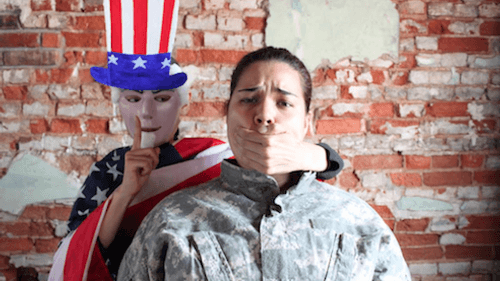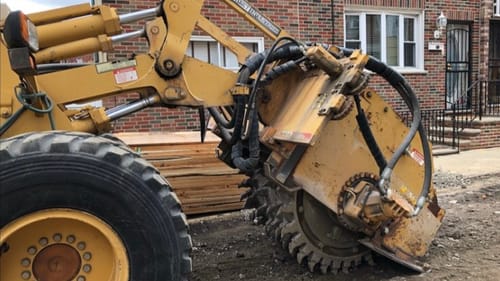Stay in the Loop
BSR publishes on a weekly schedule, with an email newsletter every Wednesday and Thursday morning. There’s no paywall, and subscribing is always free.
Loud but learning
No more all-white seasons: Continuing the conversation on inclusion at Philly theaters

There is a wave of anger rippling through the Philadelphia theater community, one that has been growing for many years, articulated many times in many ways. Most recently, an open letter from a group of theater artists addressed Philadelphia Theatre Company following its announcement of a new initiative for diversity—and a season of shows all by white, cisgender playwrights.
For the 20 signers of the April 9 letter and their supporters, this was yet another attempt at expressing feelings that have long been ignored, despite rising again and again. That’s one of many reasons that I found Philly stage director Kevin Glaccum’s April 12 response, published on Facebook to a firestorm of conflicting commentary, doubly hurtful. It stood by ideas that we’ve been fighting against for a long time.
“TIME IS UP”
Many of us are asking, “How do we move forward?” But first we have to ask, “How did we get here?”
Gabriela Sanchez, artistic director of Power Street Theatre Company, followed up with her own public response on social media, beginning with “TIME IS UP!” and echoing many of the sentiments that run through this deeply nuanced conversation.
“I refuse to center my life, work and energy around making folks with privilege feel comfortable!” she writes, calling out generations of excuses blocking the simple and necessary commitment to diversity, equity, and inclusion: “JUST DO IT!”
Sanchez voices many questions, like “Why is it that we need to try different tactics versus speaking our truth?” and “Why is it that we are told to take the higher road, when we are faced with racism, prejudice and hate?”

She is one of many expressing that we have been here before. We have attended these panels. We have started our own companies. We have given our time and emotional labor to attempt to educate the gatekeepers within our community. And to what avail? We have been to countless antiracism meetings put on by the community throughout the years. Yet POC, trans, and gender-nonconforming artists leave these panels feeling fetishized, tokenized, and ignored—while those who stand in positions of privilege receive “allyship cookies” for taking their first step toward progress, even while doing little beyond conversation. We must take the next steps.
The fear inside the anger
Within our anger, there is also fear that nothing will change. Without action, we will plateau at progress made and neglect the steps yet to be taken. The world will tell us to continue waiting for an unspecified amount of time for change to happen gradually. As if we have not already been waiting.
And there’s another fear for many theater-makers who do not experience the marginalization that others do. Glaccum articulates this when he asks what pressures artists will succumb to if the winds were to blow in the direction of exclusion rather than inclusion. This illuminates a fear echoed by many—particularly straight, white, male artists—that one day they will not be allowed to tell their stories at all. In other words, they will feel the exclusion that we have felt throughout our entire careers.
This fear, which is deeply rooted in systemic white supremacy, shows us two things. First, it reveals the intentions behind efforts for better inclusion when they do happen in the theater industry: to appease outside calls for change rather than a principled effort to create equal space for marginalized folks. Second, as many activists and educators have expressed, equality can feel like oppression when you are used to privilege.
Taking the risks
The Philadelphia theater community, whether it is the artists or the audience, presents itself as progressive. We scorn Trump. We went to the Women’s March. We voted for Hillary. We call our representatives. We expect politicians to uproot the systems that elected them. We know that politicians can risk everything if they step out of the status quo to fulfill the needs of the people. But as progressive art-makers, we don’t hold ourselves to the same standards. We don’t take the risk. And as theater-makers we know that, without risk, the show is already dead.

As a young actor, when I make an angry or seemingly radical comment on a major artistic director’s public page, I am taking a risk. I am risking future jobs. I am risking future money, future sponsors for my own projects. I am risking the exact things artistic directors are unwilling to risk when they express fear of losing jobs, not making money, or not selling tickets. When Elaina Di Monaco, Haygen-Brice Walker, and 18 other signers released this letter, they were taking a risk.
Active allyship is putting yourself on the line. It also means putting in the extra work. Of course, this is not limited to hiring actors or playwrights—like open-letter signers Twoey Truong, José Raùl Mangual, Erlina Ortiz, and Jarrett McCreary, whose work always takes risks to amplify their communities—but is especially important when it comes to directors, designers, and every administrative position you could have in your theater office. This is called creating space. If you’re not willing to do this work, are you truly ready to call yourself an ally?
The next steps
Fortunately, there are many opportunities coming up in Philly to learn about dismantling white supremacy. You can participate in upcoming workshops focused on reading the Me and White Supremacy workbook by Layla F. Saad, with discussions scheduled to run May 9 through June 5, 2019. For more information, email Jacqueline Goldfinger ([email protected]) or Jenna Pinchbeck ([email protected]). The workbook is free to download, but donations to support Saad’s work are encouraged.
In October 2019, check out the Transgender Training Institute for The Transgender and Nonbinary Ally Training Camp. Or you could invite Philly for REAL Justice or the People's Institute for Survival and Beyond into your space. West Philly’s Radical Therapy Center is another great resource, in addition to Sonalee Rashatwar's work (find them at @thefatsextherapist on Instagram). On April 17, 21, and May 1, catch "Healing Our Bias: Race and Gender" workshops from facilitators Shanel Edwards and Eppchez!. Plus, Di Monaco is working with PTC to compile a list of resources for institutions and boards focused on unpacking white supremacy within organizational structures.
I am not the “wokest” person. I am loud but learning. I am searching for the resources to guide my next steps, just like everyone else. But the first step is to make the active, difficult choice to take the risk and stay with it, sometimes even allowing yourself to lose something. No one can force you. This is where, in the past, we have failed.
Sign up for our newsletter
All of the week's new articles, all in one place. Sign up for the free weekly BSR newsletters, and don't miss a conversation.
 Becca Khalil
Becca Khalil